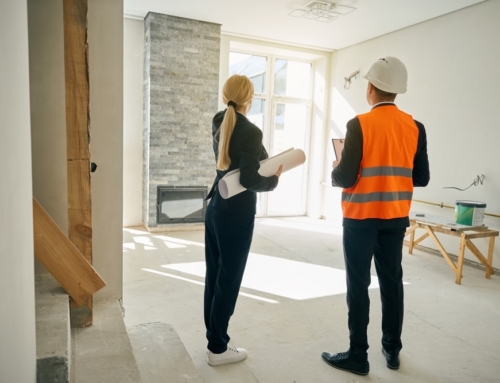Finding a good Home Inspector requires some time and due diligence.
 Q: What is best way to select home an inspector? What criteria should I use to select a good inspector? I want to make sure the house I buy is in excellent condition.
Q: What is best way to select home an inspector? What criteria should I use to select a good inspector? I want to make sure the house I buy is in excellent condition.
A: When it comes to home inspectors, your search for one should be similar to your search for a good lender. You’ll want to talk to your friends who recently used a home inspection to get a few referrals. You can also speak to your real estate agent and get some names from him or her.
Do a thorough interview with a prospective inspector, and ask what his or her process is for inspecting the property, how long it takes, what their special expertise is, and what kind of paperwork or information you will receive about the property.
You should also make sure that the inspector’s knowledge matches up with the type of property you are buying.
If septic tank systems are common in your area, make sure that your home inspector is quite knowledgeable about septic tanks and septic fields. If you live in the south, make sure he or she knows what to look for when it comes to wood boring insects.
If there have been incidents of drywall problems in your region, you’d want the inspector to know how to spot the warning signs of problems with drywall that have been linked with electrical, plumbing and health issues.
While the list is quite large, it is not enough to know that the home inspector is affiliated with a national organization, while those organizations are good affiliations; they won’t mean that your inspector is good. You still need to do your research on him or her.
In addition, you must know that home inspectors may find potential issues with items in the home and may refer you to other trades to perform additional inspections. When inspectors make these referrals, they can be bothersome.
You have hired this inspector to review the home and it may not be hugely helpful if the inspector goes through the home and lists the cosmetic problems with the home and refers you to heating, air-conditioning, termite, roofing, foundation, septic system, water heater, soil conditions, and other specialists for their review of your home. When the list gets too large, that inspector’s review of your home may be of little value.
For these reasons, you need to understand what the inspector will look at in your home before the inspection occurs. You can even ask the inspector what inspections he does not perform in the home as that list may be shorter than the list of what will be inspected.
Technology has improved and home inspectors now use infrared cameras and moisture meters to assist them in their evaluation of a home. But keep in mind that you want the inspector to know how to inspect, review and evaluate the biggest problems you might have with your home.
Any inspector can miss a broken faucet or toilet, but you don’t want that inspector missing a large crack in the foundation of the home, mold in the attic, a non-functioning septic system, a siding system on a home that has caused moisture problems to surface in the home, a roofing system that needs replacement, or a structural problem with the way the home is constructed.






Ilyce-
As a Regular reader of yours and associates articles, I am usually in total agreement with your opinion; most often learning a lot in the process.
Today I take a minor exception to your advise, namely to solicit the name of a property inspecto from ones RE agent. The inspector relies on repeat business – something the RE agent can offer. Myself – as an individual buyer has no clout with the inspector. I am a One Timer!
My last house, I bought in a area I was unfamiliar with (I.E I did not know other people to ask for advice). I was moving due a job change. I used the RE agent’s advice for the inspector. BIGGEST RE mistake I ever made. Only after moving in several months later did I learn of latent defects, that I think should have been detected.
If in the future, if I buy a house I will solicit a local professional inspecting assoc’s for a qualified and Independent professional. I will then have my RE agent meet the inspector for the FIRST time – at the appointed time to inspect the house. This at least precludes any apriori agreements. If any problems arise, post purchase I would expect the Inspector’s assoc to assist in a remedy to the problem.
Keep your great articles coming …
dave Branord CT
Dave,
You make a great point. Yes, you should talk to friends and others. And if you do take the referral from a real estate agent, you should check out that inspector though the Better Business Bureau, know what affiliations he or she has, and find out how many inspections he or she has done for this real estate broker.